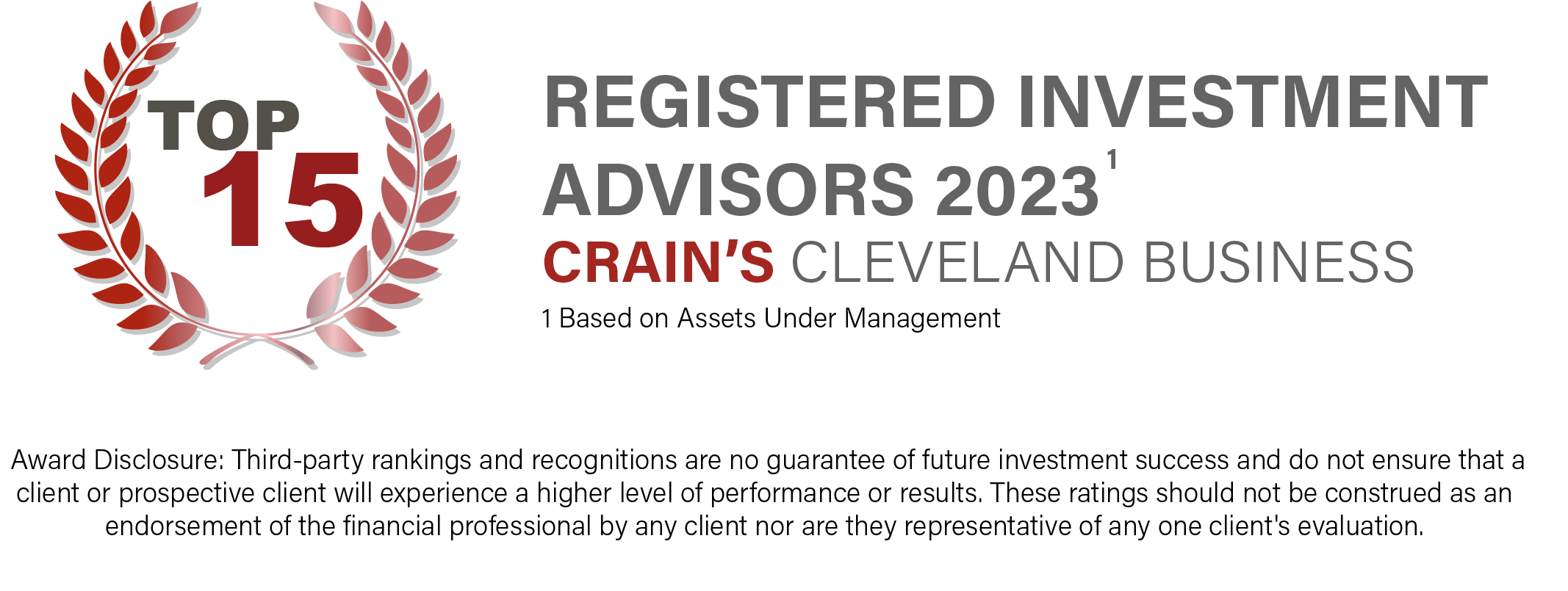Posted By Lineweaver Financial Group
August 12, 2025
Category: Financial Planning, Investment, Finance
By Chad Roope, CFA ®, Chief Investment Officer
Compounding is the superpower of investing. Following the Rule of 70, an investment averaging 10% per year will double in just seven years. That’s the kind of growth that builds real wealth over time.
But there’s a catch. Anything that slows compounding, even slightly, can have a dramatic impact on your long-term results. One of the biggest threats to that is unnecessary taxes.
In the chart below, a JP Morgan analysis shows that a modest 1% annual “tax drag” on a $1 million investment in the U.S. stock market from 2014 to 2024 would have reduced its value by $326,000. At 2%, the loss jumps to $625,000. That’s money that could have been working for you.
We all must pay our fair share of taxes. However, we should be very mindful about not paying extra. At Lineweaver, we employ proven, proactive strategies to help reduce unnecessary taxes so you can keep more of your gains compounding year after year.
Systematic Tax Loss Harvesting
Throughout the course of the year, some investments rise while others fall. That’s diversification for you. But we can help with taxes and get the benefits of diversification at the same time. For example, if a particular company hits a rough patch and we have a loss in the stock in a taxable account, we can sell the stock and harvest the loss to help with taxes. We can then reinvest the proceeds in a different company that we either like better or
Posted By Lineweaver Financial Group
December 19, 2024
Category: Finance, New Years, Resolution, Mistakes, 2025
As the year draws to a close, many of us begin reflecting on our goals for the upcoming year. Not surprisingly, financial resolutions often top the list. According to a 2024 study by the Pew Research Center, 61% of those who make resolutions include money or finances among their priorities.
With this in mind, setting the right financial goals is key to starting the year on the right foot. To help you avoid common pitfalls, we’ve put together a list of five financial mistakes to steer clear of—ensuring your resolutions set you up to reach your financial goals.
Not preparing for the unexpected
Having an emergency fund is essential, especially in today’s uncertain economy. According to a 2024 Discover Personal Loans survey, 80% of Americans feel anxious about their finances, with many unprepared for events like job loss, unexpected expenses, or medical emergencies.
Beyond an emergency fund, proper insurance is crucial to protect your financial plan. Review your life, disability, property, and casualty insurance to ensure you're covered. For retirees, long-term care is critical. According to the U.S. Department of Health and Human Services, 70% of people aged 65 or older are likely to need long-term care at some point. Lastly, if you own rental or vacation homes, an umbrella policy can provide extra protection.
Not planning goals
Not planning your financial goals is another mistake to avoid. According to a survey by Schwab, only 36% of Americans h
Posted By Lineweaver Financial Group
October 03, 2024
Category: General, Stock, Finance, Market Commentary
We have been highly constructive on U.S. large-cap stocks in our investment strategies since October 2023. We remain optimistic generally into 2025, but as we enter fall, we think it is prudent to be slightly more cautious as some facts have changed over the last several weeks.
First, our analysis of earnings surprises and estimate revisions has detected some cooling trends, suggesting potential moderation of the earnings advantages that catalyzed much of the rally this year so far. Our research also reveals the autumn period in October through mid-November in presidential election years has tended to be more volatile than usual, with increased vulnerability to downside moves. The elevated uncertainty surrounding the upcoming election adds additional complexity. Given the sharp divide in the parties’ expected policy and the expectations of a close race, many real economy actors are delaying major capital allocations and business-defining bets to after election night. In this state of uncertainty, any lack of market liquidity has the potential to trigger volatility. This may be compounded if the final outcome of the election is delayed, as we saw in 2020. Finally, recent changes in market temperament have also caught our attention and give us pause. Relatively tranquil gains in large-cap stocks for most of the year have been disrupted recently with larger single-day selloffs, rotations, and V-shaped snapbacks, which may be signs of a market more susceptible to headlin
Posted By Lineweaver Financial Group
September 05, 2024
Category: Strategy, Finance, Retirement Plan
When you retire, it's normal to wonder if you'll have enough money to cover all your needs. This can be especially worrying when you're advised to focus on long-term investments to make sure you have enough money for the rest of your life. Don't worry, though - there are several strategies you can use, like the "Three Bucket Strategy," to help with this.
With this strategy, you take your retirement portfolio and divide it into three buckets. The first is used to fund day-to-day expenses. The third bucket funds longevity. And the middle is the go-between or transfer place to refill bucket number one as it is depleted.
Now, let’s break it down further and take a look at bucket one. In there, you’ll find income-producing assets that could include CDs, money market funds, US Treasuries, pensions, fixed annuity, and Social Security funds – all things that will not decrease in value and are accessible when needed. Basically, this bucket is meant to provide money to live. If you place an amount that will cover about two years of expenses in this bucket, you won’t have to be concerned if the economy or investment markets take a dip. But what if you want to plan for longevity?
That’s where bucket three comes in. In this bucket, you will find stocks, high-yield bonds, real estate, and other higher-return assets. All of these are long-term investments geared toward helping you keep from running out of money as the years pass. Co
Posted By Lineweaver Financial Group
August 22, 2024
Category: Financial Advisor, CFP, Finance
When it comes to planning for retirement, managing investments, or simply trying to get your financial house in order, you want a financial advisor who can help get you to your goals. But how do you know when it’s time to make a change and find a new advisor?
First, let’s talk about the red flags. If your financial advisor isn’t communicating with you regularly or isn’t transparent about the fees they’re charging, it’s a sign that it might be time to look elsewhere. Your financial advisor should be proactive, keeping you informed about how your investments are performing, and how any changes in the market might affect your financial goals. If you’re left in the dark, it’s a clear indication that your advisor might not be prioritizing your best interests.
Let’s not forget the importance of trust either. Your financial advisor should be someone you feel comfortable with—someone who listens to your concerns and takes them seriously. While experience, knowledge, and credibility are all important, doing what’s best for the client is perhaps the most important thing a financial advisor can do.
That’s why when you’re evaluating your current advisor, you should check if they’re a CERTIFIED FINANCIAL PLANNER ™ Professional, or CFP®. There are many designations that mean different things, and it’s always important to choose an advisor with demonstrable credentials that align
Posted By Lineweaver Financial Group
July 26, 2024
Category: Markets, Finance, Outlook
News headlines have been volatile this year with many geopolitical issues, economic worries, and, most recently, President Biden exiting his re-election campaign. Nevertheless, the stock market has done well and continued to “climb the wall of worry.” This reality serves as a good reminder that ignoring most news headlines and political noise is typically the best investment strategy.
Since the start of the year, we have maintained a positive outlook and positioning, especially with U.S. large-cap stocks. That is because of our view that AI-related investments, onshoring, and cooling inflation will benefit earnings for these types of companies the most.
Despite some choppiness, the data tells us this scenario is playing out as expected. With manufacturing surveys softening and business confidence muted, markets may begin to over-discount a sharper slowdown. Nevertheless, we continue to believe that the pace of economic growth is moderating at a goldilocks pace, and inflation is cooling sufficiently to allow the Federal Reserve (Fed) to begin easing before the end of the year. We expect U.S. growth to be close to trend at about 2.0% by the fourth quarter and inflation to continue cooling toward the Fed’s 2% target by mid-2025. This should be a good environment to support our view on equities overall and offer a positive environment for bonds.
Outside the U.S., the European economy is expanding once again, activity in China i
Posted By Lineweaver Financial Group
July 16, 2024
Category: Finance, Legacy, Trust, Will, Estate
Estate and Medicaid planning are crucial components of financial strategy, as they can help protect your assets and secure your legacy. A powerful tool in this domain is the Irrevocable Trust, a fiduciary arrangement that offers numerous benefits while maintaining control over asset distribution. There are many intricacies with irrevocable trusts and they can potentially help enhance your estate-planning efforts.
What is an Irrevocable Trust?
A trust is a legal relationship where a grantor transfers assets to a trustee, who then manages these assets for the benefit of designated beneficiaries. Trusts serve various functions, such as reducing estate taxes, minimizing or avoiding probate, funding charitable gift strategies, and facilitating Medicaid planning.
An Irrevocable Trust, as the name suggests, is a trust that cannot be modified or terminated once it is established. This can allow you to get assets out of your estate, which could potentially be helpful for estate and Medicaid planning. Trusts like these are ultimately about giving you control of your assets, your estate plan, and, ultimately, your legacy.
One possible benefit of an Irrevocable Trust is its ability to help avoid probate court. Unlike a will, which must go through the often lengthy and public probate process, a trust can offer the grantor better control of how, when, and to whom money passes. Many parents find this comforting if they have children who are not good with money or if they simply want to
Posted By Lineweaver Financial Group
June 20, 2024
Category: CFP, Financial Planner, Professional, Finance
When searching for a financial advisor, you might notice the alphabet soup following their names. There are over 100 certifications available to financial professionals, all with different meanings and specializations. But among the most distinguished is a CERTIFIED FINANCIAL PLANNER ™ Professional, or CFP®. There are several reasons why it is considered such an important designation, and one you should look for in your financial planner.
Reason 1: Education, Experience, and Credibility
The CFP® designation, offered by the CFP Board, is significant because it requires an impressive amount of study, experience, and preparation. It takes from nine months to two years of study, and that’s after earning a bachelor’s degree and a minimum of three years of working as a financial professional. A candidate is then required to sit for a rigorous test that covers many different areas of financial planning.
Reason 2: the CFP® Indicates a Holistic Approach
Training and experience for a CFP® don’t end at financial planning. While they receive rigorous experience and training in financial planning, a CFP® also receives education and experience on a wide range of related topics, such as risk management and insurance planning, investment planning, tax planning, and estate planning. This comprehensive experience helps a CERTIFIED FINANCIAL PLANNER ™ Professional to be a sounding board for clients and helps to consider th
Posted By Lineweaver Financial Group
June 13, 2024
Category: Finance, Annuity, Strategy, Annuities
Annuities have been in insurance agents' and financial advisors’ toolkits for decades. It’s a product designed to provide a steady income stream for retirees. It’s no secret that annuities have been a popular option, but are they always the best investment choice? Here’s the rundown of the pros and cons of annuities. Let’s see if they could be suitable for your financial strategy.
Firstly, it's crucial to understand that every financial strategy has its place, including annuities. Many people value the relative financial security annuities can provide. However, annuities come with several drawbacks. One major issue is the lack of liquidity – meaning once you invest money in an annuity, you are often limited as to how and when you can get it out. At the very least, they’ll likely have a surrender charge. Some have even more limitations – like how much they can withdraw each year!
Often, these products aren’t fully explained at the time of purchase, leading to confusion and frustration down the road. By the time you encounter an issue, the original salesperson may no longer be available to assist, leaving you to navigate the complexities on your own.
So, there can be many challenges annuities offer, but how would investors know? Annuity companies are required to report all details to a third-party service. We can access these tools and provide you with a no-obligation annuity intelligence report. Thi
Posted By Lineweaver Financial Group
March 07, 2024
Category: Healthcare, Retirement, Finance
If you're anything like most Americans, healthcare costs can be a big concern when you're planning for retirement. That's why it's essential to keep them in mind as you're getting ready for your golden years.
One common error we notice is people assuming their healthcare expenses will be covered by Medicare in retirement. The truth is, a single 65-year-old could need approximately $157,500 saved after tax to cover health care expenses in retirement, according to a report by Fidelity. And that number jumps to $315,000 for an average retired couple age 65.1
Those figures hinge on various factors such as your work duration, retirement timing and location, health condition, and life expectancy. Nonetheless, it could serve as a valuable target to strive towards.
Another common pitfall we notice is the consistent underestimation of the need and the costs associated with long-term care. Although the extent of long-term care required varies for everyone, data from the Administration on Aging paints a striking picture: at least 70% of individuals aged 65 or older today will inevitably find themselves in need of some level of care.
Every year, Americans are shelling out a whopping $475.1 billion for long-term care. Surprisingly, Medicaid only covers 42% of these costs. This means you'll probably be responsible for a significant portion of the bill, making it crucial to plan ahead.
Another important thing to note is Ohio's latest updates regarding
Posted By Lineweaver Financial Group
January 18, 2024
Category: Finance, Retirement, Planning
Navigating the financial landscape in retirement can be a daunting task. It's like trying to pass through a jungle of expenses – health care, taxes, and long-term care costs all taking a piece of the hard-earned nest egg you've been building for ages. And just when you think you've got it all figured out, here comes the rollercoaster of economic uncertainty.
In the face of such high stakes, it's no wonder the prospect of spending in retirement can be overwhelming. But with our team of financial professionals behind you, you can take steps to help you reclaim control and ease the anxiety associated with post-retirement expenditures.
Embarking on the journey toward retirement becomes much smoother when you proactively create a budget beforehand. This invaluable tool allows you to gauge your anticipated expenditures and income streams once the daily grind is behind you. It's crucial to take stock of the various income sources at your disposal, such as Social Security, pensions, and 401(k)s, while also factoring in inevitable expenses like taxes, health care, and long-term care.
When you're getting budget-savvy for retirement, start by figuring out what's a must-have and what you can let slide. Let's say you're dreaming of a retirement filled with jet-setting adventures. Well, that travel fund needs to be part of the grand budget plan.
And let's not forget the inevitable: taxes. It's a good idea to give taxes a special seat
Posted By Lineweaver Financial Group
January 04, 2024
Category: Resolutions, Finance, Goals, Taxes
We’ve been working with private and corporate clients for nearly 30 years. Every year at this time, we meet new clients who want to drastically overhaul their finances, and set themselves up for increased wealth in the New Year. We’ve put a list of 5 resolutions that we always share and that you can put to work for you, too.
Resolution No. 1
First things first. The base of any good financial plan is insurance because it helps you control risk. You can have the best financial plan in the world, but if something happens to you or your family, you need to be protected to keep your plan in solid footing.
You first want to take the time to make sure all your insurances are in proper order. This includes Life insurance, disability insurance, and even property and casualty. Because we specialize in working with retirees, long-term care is especially important to our clients. According to the U.S. Department of Health and Human Services, 70% of people aged 65 or older are likely to need long-term care at some point.
Finally, you may want to consider an umbrella policy, especially if you have rental or vacation homes.
Resolution No. 2
Your financial goals, both long and short term, should be driven by your personal goals – whether that’s providing for children and grandchildren, sending them to college, passing the family business to the next generation, or preparing for your own retirement and the traveling you want to do, you should
Posted By Lineweaver Financial Group
November 21, 2023
Category: Charity, Finance, Donation, Tax Strategies
The end of the year is the time when people are looking to show gratitude by donating to their favorite charities or special causes that are important to them.
But like any financial decision, you should take a moment to see if there are any tax benefits or strategies to consider that can maximize your giving efforts.
The first strategy to consider is a Donor Advised Fund. These have two main tax advantages. First, you become eligible for an income tax deduction of the full fair market value of the asset, up to 30% of your adjusted gross income (AGI) for gifted securities, and 60% of your AGI for cash. It also eliminates capital gains taxes on long-term appreciated assets if they’ve been held for longer than a year.
The second strategy that can help benefit a charity – as well as your own finances – is a Qualified Charitable Distribution or QCD. QCDs can be a great option for those 70 ½ or older and allows you to contribute money directly from your IRA to your preferred charity. You’re allowed to give up to $100,000/year.
The advantage is that this reduces your AGI, which affects things like Medicare, Social Security, and various other tax credits and deductions. It may even help you reduce your income taxes. It can also help you offset any additional income you have if you’re over age 72.
Another charitable deduction that’s available is the Ohio Scholarship tax credit. It’s a $750/person non-refundable credit you ca
Posted By Lineweaver Financial Group
November 02, 2023
Category: Finance, Market, Portfolio, Investments
Key Takeaways:
We are changing our allocations to slightly overweight U.S. quality stocks, seeking to capitalize on the recent market pullback and position for potential upside surprises in U.S. economic growth and corporate earnings.
We are leaning into U.S. high-quality stocks expressing a high-conviction preference for the largest cap stocks in the U.S. that appear to have attractive growth profiles.
We plan to decrease our exposure to Europe, moving underweight international Developed Market (DM) stocks due to weakening corporate earnings signals and more pronounced downside vulnerability to potential rising energy prices and geopolitical turmoil.
We are underweight bonds and overweight cash and short-term instruments that offer very attractive yields.
The ghost of September's past haunted markets once again in 2023 and has carried over. This notoriously weak seasonal period - combined with rising rates and declining liquidity - saw stock and bond prices press lower. The S&P 500 Index, for example, is off its late summer highs by almost 10%, and the Bloomberg U.S. Aggregate Bond Index is down a similar amount from its earlier highs. We are potentially facing an unprecedented third year in a row of bond market losses.
Overall, it has been a challenging year for investors with only the largest stocks doing well while most equity and fixed-income styles are flat to down. The “Magnificent 7” stocks in the S&P 500
Posted By Lineweaver Financial Group
September 21, 2023
Category: Finance, Cds, Bonds, Invest
Are you frustrated with your bank savings interest rates? We have a few options to get your money working harder for you.
When it comes to building a robust and diversified investment portfolio, there's more to consider than just individual equities and real estate. CDs and bonds are often overlooked but can be invaluable assets in any investor's toolbox, especially at today’s historically high rates.
Generally speaking, the S&P 500 return is 10% annually on average since 1957, according to Seeking Alpha1. But in a year with market uncertainty, constant volatility, and rising interest rates, a smaller return with reduced risk may be a preferable option to some. Because of elevated interest rates, there are both CDs and bonds that are paying in the 5.5%- 7.2% range2. And the Fed’s future path is uncertain – these rates may increase over time.
CDs are fixed instruments, so any rate increase won’t affect those you hold now. But you can stagger your purchases and build a CD ladder, which allows you to layer new CDs at increasing rates so that you may be able to benefit from rising interest rates.
This is possible because all CDs have a term – a fixed contract date – and different interest rates will be offered for different durations. CDs also have the advantage of being FDIC-insured up to $250,000.
That brings us to our other strategy, bonds. The FDIC insura
Posted By Lineweaver Financial Group
September 07, 2023
Category: Finance, Money, Dollar, Fitch, Rating
We have received questions recently regarding the U.S. Dollar and countries like Brazil, Russia, India, China and South Africa (BRICS) potentially developing alternative currencies and financial institutions. While we agree that the U.S. fiscal and monetary situation has deteriorated over recent years, and it is likely that China and Russia in particular are pushing to find alternatives to the U.S. Dollar and financial institutions, we do not view this as an imminent threat to the global economy or your investment portfolio.
The U.S. Dollar dominates global trade flows and we do not expect this to change in the near term. It’s estimated that the total value of global trade in 2022 was $32 trillion. The U.S. Dollar was 88% of those trades1. That is only down from 90% in 19881. Further, a reserve currency like the U.S. Dollar must be deep enough to support such large demand, be overseen by a country that can support large current account deficits, has a clear rule of law, does not impose capital controls, and supports property rights. To us, none of the BRICs demonstrate this resiliency. As such, we believe the U.S. Dollar remains the world’s reserve currency for the foreseeable future.
We think maintaining a diversified portfolio of U.S. and International stocks and bonds is the best defense against any potential actions by these countries, which is how we have invested your
Posted By Lineweaver Financial Group
August 24, 2023
Category: Finance, Wealthtrac, Analysis, Portfolio
We’re excited to share the arrival of our new product, the Lineweaver WealthTrac Analysis. This is a sophisticated tool that helps us not only evaluate your current and future financial goals but to also consider emotions and behavior in a way that helps set you up for success.
This is a powerful tool that evaluates your current and future financial plan in 5 different areas: Personal Information, Financial Information, Investment Goals, Risk Tolerance, and Risk Score.
It considers variables like your employment, career and income, your Social Security, what you want out of your retirement, what your current financial situation looks like, and much more. By doing this, it can give you a great analysis whether you’re still working or retired.
Wealth planning is always about establishing a goal and working toward it. To help client’s do this, we look at their top three financial goals. We measure where they are now, and what it would take to meet their timeline.
Part of those goals is looking at three time horizons and the strategies that are best matched with each. You must think about the short-term, middle-term, and long-term goals.
A truly innovative aspect of this program is how it lets us visualize how your risk tolerance and your emotional tolerance match up to the risk you’re actually taking, and the progress you’re making toward your goals.
Our sophisticated analyzer also goes even further and offers you a score b
Posted By Lineweaver Financial Group
July 13, 2023
Category: Finance, Tax, Inheritance, Trust, 529, IRA
For older Americans, leaving retirement savings to their grandchildren without also leaving them a big tax bill is becoming harder under new rules that took effect in 2020.
Previously, heirs other than spouses had decades to draw down inherited retirement accounts. After the rules change, now they must do it within 10 years.
To maximize their family’s after-tax wealth, grandparents are changing their estate plans and creating new trusts. The timing change also has grandparents making a series of Roth conversions or big generation-skipping lifetime gifts.
These choices make sense with the amount of money and taxes that are at play. According to the Investment Company Institute, Americans held $12.5 trillion in IRAs as of March 31, 2023 and 52% of households headed by someone 65 or older have one.
By choosing to leave a Roth IRA, you avoid some of the problems of the accelerated tax hit from an inherited traditional IRA since those can cause a big tax bill, especially if distributions fall during the heir’s highest earning years. Minor grandchildren may also need to file a tax return to report the IRA payouts, and the income could be taxed at the parents’ rate.
However, because of the 10-year payout period, there is a risk that your heirs will spend the money quickly.
Other options to consider when planning your legacy is to start making lifetime gifts to grandchildren as soon as they are born. That can look like pay
Posted By Lineweaver Financial Group
June 15, 2023
Category: Finance, Awards, Investment, Crains
Lineweaver Wealth Advisors is proud to announce that we have been named as one of the Top 15 Advisors in Cleveland by Crain’s Cleveland Business, moving up three spaces from 18 last year. We are humbled to have received this recognition and credit the hard-working team at LWA and the many clients that we have who put their trust in us.
According to the list, LWA is one of only 5 of the 25 on the list of Advisory services that grew over the last year. We do that in two ways. First, our goal is to make smart decisions with our client's money, which helps benefit them. And the second is that our clients, friends, and neighbors are constantly referring new clients to us. We want to help them be successful, so that it’s easy for our clients to say good things about us.
Our staff work hard and go the extra mile for our clients while adding a personal touch. People are sick of the phone tree and digital assistants where you’re the one that must answer questions when you have important questions you want to ask your advisor. Technology is important – we use it to help build and monitor our client’s customized portfolios. But, just as important is being able to talk directly to your advisor or a member of our service team if you need help.
We also believe everyone needs a Financial Quarterback –an experienced and knowledgeable advisor to coordinate the members of your team, and to help make sure your customized financial plan is consi
Posted By Lineweaver Financial Group
May 18, 2023
Category: Tax, Finance, 401k, Retirement
The idea of saving as much as possible during your career while making wise investments to have a comfortable retirement is nothing new for workers. But if you don’t consider a tax strategy with that plan, it can derail any retirement.
Many workers are able to get company stock either as part of their compensation or through the company’s 401(k) program and these are the stocks you want to pay attention to so you don’t lose money in taxes.
Typically, when people retire, they roll all of their 401(k) to an IRA and everything you paid for that company stock inside the 401(k) and all the appreciation through your working years will be taxed at your personal income rate when you take money out to supplement your retirement.
Instead, if you use the Net Unrealized Appreciation – or NUA – rules, you can roll the stock out of the 401(k) and pay ordinary income taxes only on the cost basis, or what you paid for the stock through the years. Then, if done correctly, you can have the appreciation of the stock taxed at the much lower capital gains rates. For most people, this could cut your tax bill almost in half.
For example, let’s say that you have $300,000 of company stock in your 401(k), that you paid $100,000 for. You roll the stock out of your 401(k) to a non-IRA account. You will pay taxes on the first $100,000 at your ordinary income rate, but the additional $200,000 would be taxed at your capital gain rate, which ca





















 Virteom
Virteom